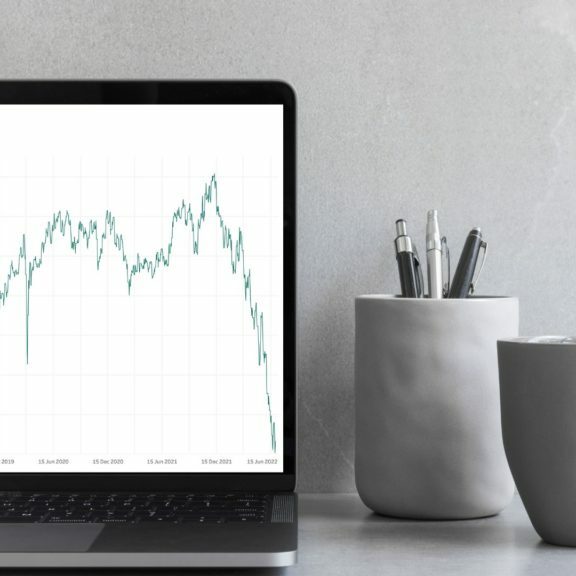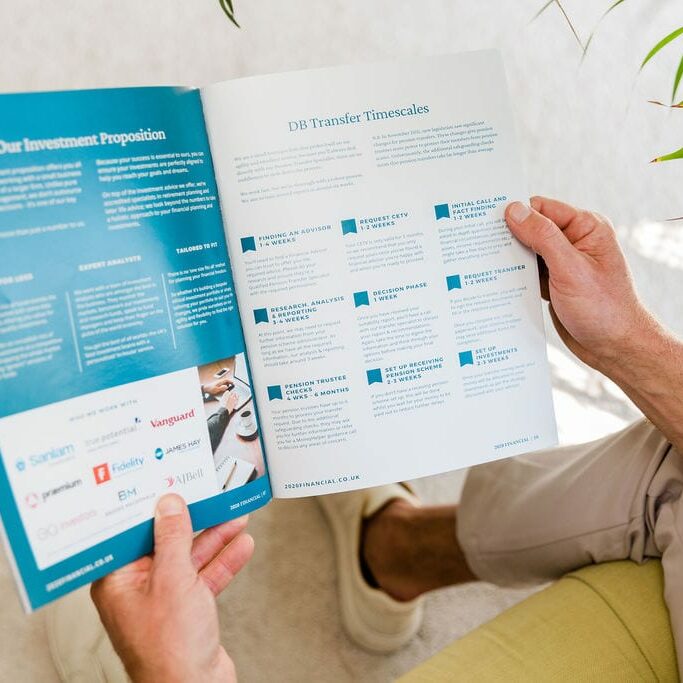
If you don’t know what happens to your Final Salary pension when you die, you’re not alone. Scottish Widows estimate that as many as one in five people have no idea who stands to get their retirement savings.
It’s understandable that so many people are in the dark, pension rules can be complex, not least because the rules governing what happens to your pension when you die are different depending on what kind of pension you have.
It’s important to understand as a Final Salary Pension holder what rules apply to you.
So what will happen to your final salary pension when you die?…
Inheritance rules for a Final Salary Pension differ from scheme to scheme. Final Salary Pensions will normally pay a reduced pension of 50% to your spouse or dependent child when you die. Exactly how much, depends on when you die and the scheme you’re in.
Inheritance tax rules surrounding Pensions have changed but rules for who can inherit your Final Salary Pension differ from those for defined contribution pension plans and this is decided by your Pension Scheme administrator; as is the amount your Spouse will receive so it’s always important to check the details with your scheme administrator.
What happens to your final salary pension when you die?
A defined benefit pension – a pension that’s based on your final or average salary and the length of time you work for the employer – will usually pay a reduced pension to your spouse or partner normally 50% but some may pay up to two-thirds.
But exactly what happens to your Final Salary Pension and how it’s paid out when you die will largely depend on whether you’re still an active member of the scheme and whether you have already started taking your pension.
If you are already receiving pension payouts from your Final Salary Pension and are married or have a registered civil partner, they will normally continue to receive a reduced pension payment after your death. Some schemes may also pay out a lump sum if you die in the early years of your retirement.
Depending on the terms set out by your pension scheme, your pension may also pay out to any dependent children or your scheme may pay it to another adult who is financially dependent on you.
Does a final salary pension payout on death?
If you die while you’re still paying into a final salary pension, you may get some form of life cover. Normally, if you die, it’s paid as a cash lump sum that is paid tax-free. The amount will depend on the type of scheme you belong to, but it is often based on a multiple of your salary or pensionable earnings. In addition, the scheme may refund the contributions you have made.
Your scheme may also provide a dependant’s pension. Dependants’ pensions are normally paid to a spouse, or registered civil partner and may be payable to dependent children.
Life cover normally ends when you cease working for the company or leave the scheme, so if you’ve already started claiming your pension before you die or you are a deferred member, your scheme will normally only pay out the previously mentioned reduced dependant’s pension and not a lump sum. Again, check with your scheme for the exact rules that apply to you.
What happens if I die as a deferred member?
A deferred member is someone who has stopped paying into the pension scheme. If you die after leaving the scheme but before taking your benefits i.e. you pay into the scheme but then move jobs, your Spouse may get a reduced amount.
Depending on when you left they may work the benefits out differently, some may only pay a refund of your own contributions, which is going to be significantly less than the amount your pension would have paid out. You must check with your scheme to find out the exact rules for deferred members.
Some schemes may provide life cover, which could be a multiple of your pensionable earnings when you left the scheme, but this is not common and might be something to consider putting in place yourself.
Who gets your final salary pension after death?
If you are married or have a registered civil partner, your spouse or partner will normally automatically receive a reduced pension paid by your Final Salary scheme.
If you’re unmarried but have a dependent child or children then they will usually receive a dependent’s pension payout until they are 18 or 23 if they are in full-time education.
How much of my final salary pension will my spouse get?
How much of your pension your spouse will receive will again depend on the rules set out by your individual scheme but it is likely to be around half the amount you would have received. This benefit dies with your spouse, they are not able to nominate anyone to receive any remaining pension after they die.
The payments that your Spouse receives from your final salary pension will still be index-linked after your death, so they should be protected from the effects of inflation.

Final salary dependents pension and same-sex marriages
Until 2017 the law excluded same-sex partners from receiving spousal benefits paid into pensions funds before December 2005. However, a successful Supreme Court challenge ruled that this was unlawful.
The implication of the ruling is that same-sex partners now have the same rights as any other married couple when it comes to inheriting defined benefit pensions.
Can cohabiting and common-law partners inherit Final Salary Pensions?
Historically, cohabiting and common-law partners didn’t qualify for a dependent’s pension. Final Salary Pensions only paid out to your surviving spouse or registered civil partner.
However, a separate Supreme Court case in 2017 saw one long-term, cohabiting partner given automatic rights to her late partner’s pension. This landmark case paves the way for other cohabiting partners to receive automatic rights to defined benefit pensions, experts warn against making assumptions about who will inherit your pension if you pass away.
The advice is still to always check your scheme’s provisions, as there may be qualifying conditions that apply to survivors pensions and you may need to nominate your partner as your beneficiary whilst you are still alive.
Are children’s pensions payable?
Scheme’s may pay a survivor’s children’s allowance or a Spouse’s pension, but not normally both and will normally only pay a children’s allowance if there is no spouse. Again, rules change depending on the scheme but normally to be eligible for a children’s allowance they must be under 18 (or under 23 if in full-time education) and they must be your own or adopted children or financially dependant on you.
The amount of children’s allowance payable is usually equal to the spouse’s pension and will be split equally between any qualifying children.
When it comes to financial dependent adult children it is extremely unlikely that a Defined Benefit pension could be passed on to them, even if a pattern of financial dependency can be proven.
If you are concerned about supporting your children once they have finished full-time education, we recommend setting up a life insurance policy on their behalf that will pay out on your death.
What if I want to leave my Final Salary Pension to my kids?
If you have dependent children then your Final Salary Pension scheme may provide a reduced survivors pension for them. You will need to check with your scheme administrator to see if this is the case, how much they are likely to receive and for how long. Your scheme is unlikely to do this if they are already providing a survivor’s pension to your spouse.
If you want to leave the full value of your Final Salary Pension to your children then you would need to consider transferring your pension from your Final Salary Scheme to a Self-Invested Personal Pension (SIPP), where you could nominate any beneficiary (or multiple beneficiaries) to receive your full pension pot value. It is important to be aware of any risks involved in transferring a final salary pension and obtain expert advice from a Pension Transfer Specialist before you consider such a move.
Who gets my pension if I’m single or divorced
If you are single or divorced without dependent children, then you are not able to pass your pension on to anyone when you die. The value of the pension payments you would have received get absorbed back into the pension scheme pot.
Can a family member inherit a pension?
Some Final Salary Pension Schemes will make an allowance for dependent children i.e. a son or daughter who is under 18 or who is still in full-time education. But if you have a non-dependent adult child, a sibling or a parent that you support financially, it is unlikely that they will be eligible to inherit your Final Salary Pension.
But can’t you nominate anyone to inherit a pension now?
Changes to the law allowing anyone to inherit a pension only apply to personal pensions in income-drawdown. It does not apply to Final Salary Pensions or an Annuity (unless you buy a specific joint annuity or annuity policy with death-benefit provision).
Read more about what happens to Defined Contribution pensions when you die.
Are inherited pensions taxable?
The death benefit from all pensions is normally free of inheritance tax. As wealth held in pensions sits outside your estate.
However, typically, the income tax rules around this are not straightforward. Whilst inherited pensions are free of inheritance tax your beneficiary may still be charged income tax on any Lump Sums or income that they receive.
If your beneficiary is to inherit a Cash Lump Sum – If you die before your 75th birthday and they take the money within 2 years they won’t pay income tax. However, if you are over 75 when you die, they will need to pay income tax on the money.
If you have a Defined Benefit Pension that offers a dependant’s pension the recipient will always pay income tax on it at their own marginal rate.
Can I use a final salary pension to avoid inheritance tax?
Changes to Inheritance tax rules mean that Pensions now normally sit outside of your estate and are therefore not liable for Inheritance tax.
However, since a Final Salary Pension can normally only be transferred to a Spouse on death and money passed between Spouses wouldn’t normally be liable for inheritance tax anyway, there is no benefit to be gained for inheritance tax purposes since your spouse only receives a reduced Final Salary benefit when you die and they cannot then pass the benefit on when they die.
Inheritance tax and personal pensions
Since the new rules were brought in in 2014 – personal pensions now fall outside of your estate and are therefore not liable for inheritance tax. Wealthy individuals have been using the new rules surrounding personal pensions as a way to pass wealth onto their children without paying inheritance tax. Inheritance tax over the allowable threshold is currently charged at 40% so a personal pension can be an extremely tax-efficient way of passing on wealth.
If you have a personal pension in the form of an income-drawdown pension (click for our drawdown calculator for retirement), this can be passed on to any named beneficiary free of inheritance tax. It does not have to be your Spouse, you could name your children, another family member or someone outside of the family.
Because your personal pension is not part of your estate, it is important to note that it is not covered by your Will, so it is critical that you update your pension company with any changes to your situation and named beneficiary, especially if you are divorced. If you have old pension pots, you should check that they have up to date beneficiary information.
Final Salary Pension versus Personal Pension in Income Drawdown
Unlike with a Final Salary Pension, an income drawdown pension allows you to specify exactly who you want to inherit your pension (there can be more than one beneficiary). You will need to make separate arrangements with the pension provider to do this. If you have several pension providers, you will have to do this with each of them by requesting and submitting a ‘nomination of beneficiaries’ form.
Transferring out of my Final Salary Pension Scheme
If you are considering transferring out of your final salary scheme, it is important to speak to a Qualified Pension Transfer Specialist to understand the full value of the benefits you could be giving up as well as the risks and costs involved in doing so. They may be able to recommend another course of action, like life insurance, to provide for your loved ones, whilst retaining the benefits of your Final Salary Pension.



